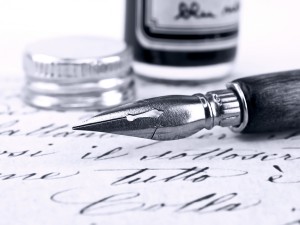The Lost Art of the Thank You Letter

To those that subscribe to this philosophy: Not writing a thank you letter after your interview is like tripping at the finish line of a triathlon. After all your hard work and effort put into the planning and the preparation for your interview, why would you lose your focus right at the end and let this critical feature slide?
By not sending a thank you letter, you are allowing your name to fall into obscurity. As a job seeker, your thank you letter is your last chance to wave your flag and be heard – your last chance to end on a bang and send a final resounding image of a grade-A applicant to your interviewer.
Yes it’s time consuming and bothersome to compose a custom thank you letter after every job interview, but putting in the extra effort pays off. Here are the ways you go about constructing you thank you letter:
Email or Letter?:The short answer – both. Most applicants are already hard pressed to write even one thank you letter, think about how you’ll stand out if you have two up your sleeve. Immediately after your interview, send a quick and casual thank you email to your interviewer. This will get you in front of their thoughts and on top of their mind on the same day that you went in for an interview – a wise decision. A few days later, re-grab their attention with a formal, handwritten or typed thank you letter sent by traditional means – snail mail.
Your second, true, thank you letter will set you apart as a higher caliber of applicant. To really shine, make sure you adhere to all the formatting rules of letter writing. A quick Google search will show you the proper structure.
Stay away from gimmicks like perfuming your envelope to add “your scent” or using brightly colored or outlandish paper – remember this is a business document, not a love letter. It’s primary purpose is a call-to-action, not the beginning of a romance.
Finally, as for content, thank the interviewer for their time, bring up key talking points from the interview (to prove that you weren’t asleep the entire time) and end on a powerful call to action that advertises you as the best solution for their employment need. Overall, be brief and be positive – whatever happens now, at least you’ve crossed the finish line running full speed ahead.

